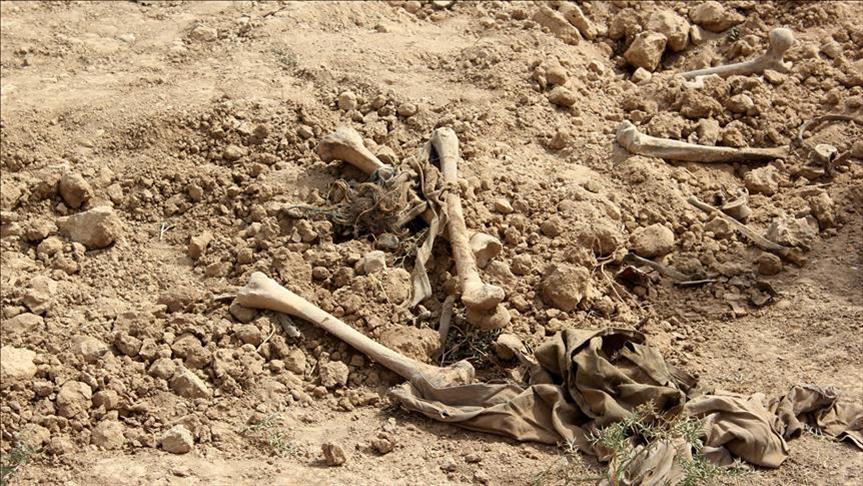By Millicent Zighe
Burundi Truth and Reconciliation Commission (TRC) has come under fire after critics expressed dissatisfaction over its composition and the general conduct of its operations throughout the country.
The selective exhumation of mass graves in particular has served as a lightning rod attracting criticism over the Government’s role in the recent insecurity.
For years, Burundi has denied existence of mass graves throughout the country. Nonetheless Amnesty International has in the past unearthed six burial sites believed to contain bodies of people killed in the 2015 clashes. Witnesses revealed to the human rights organization that the graves were dug on the afternoon of December 11, 2015 after the bloodiest day of Burundi’s crisis.
In a deliberate attempt to hide the extent of killings during the 2015 political crisis, bodies were buried without being identified. To help victims find closure, TRC recently embarked on an exhumation exercise throughout the country. However, their mandate is limited to the mass killings of 1972, 1988 and 1993 and not the 2015 upheaval, something that has angered many Burundians.
As the country grapples with human rights violations, attributed to the ruling party in conjunction with state security and the Imbonerakure militia, some victims feel exhumation is unnecessary.
“What is the point of exhuming the bodies of people massacred years ago when, at the same time, innocent people are still being sent to their deaths? What balm do these exhumations bring to the heart of a survivor whose parents, killed decades ago, are exhumed when has just buried his children or brothers shot dead by Imbonerakure militiamen from the ruling party?’ Eric Nkeshimana, told Justice Info.
Nkeshimana is among the 400,000 people who fled to neighboring Tanzania to escape the 2015 political crisis that saw President Pierre Nkurunzinza elected for a disputed third term. He has since left Tanzania for Uganda after the repatriation process commenced.
While welcoming the move by TRC to exhume bodies, Charles Nditije, a staunch critic of Nkurunzinza’s regime and former President of Burundi Union for National Progress (UPRONA) expressed concerns over Government’s unwillingness to extend the commission mandate to include the 2015 crisis.
“We have indeed learned that the TRC is particularly concerned with searching for mass graves and exhuming the remains of bodies linked to the tragic events of 1972, 1988 and 1993. This is a good thing in itself, provided that the commission has the means to properly identifying the victims, circumstances and alleged perpetrators of these crimes. But where the problem lies, and this may disqualify the work of the TRC, is that it misses recent mass graves where the identification of victims’ circumstances and alleged perpetrators would be easily done. These include mass graves linked to the 2015 crisis, dozens of which are located throughout the country,” he lamented.
Additionally, Nditije said if the process is not properly done, it may escalate ethnic divisions which have engulfed the country since 1972. According to him, 2015 atrocities were carried out by people allied to the ruling party National Council for the Defense of Democracy (CNDD-FPP) and their main target was the opposition and Tutsi ethnic group. On top of that, he condemned the country’s top leadership over persistent use of ethnic hate speech.
The veteran politician also drew attention to lack of diversity in the commission claiming that majority of its members come from the ruling party. He called out President Pierre Nkurunzinza for appointing the former head of electoral commission Pierre- Claver Ndayicariye as the president of TRC.
“The commission is far from being independent. Of the 13 members of the TRC, everyone agrees that the vast majority come from the CNDD-FDD party or satellite parties or civil society associations affiliated with the president’s party. Some people rightly think that Nkurunzinza promoted Pierre- Claver Ndayicariye to this position as a token of his gratitude, which is a real insult to the victims of the violence linked to that election ” he lamented.
During a phone call interview by Justice Info, Sylvestre Ntibantunganya, who served as Burundi President from April 1994 to July 1996 expressed complete disapproval of the process.
“It is inappropriate to carry out exhumation on Burundians without giving the Burundians people an interpretation that is as objective as possible of what happened,” he stated.
In spite of unwavering opposition, the current President of TRC Pierre- Claver Ndayicariye praised the commission’s work and rubbished claims levelled against them. “Let them talk, if they are sincere they would tell you we are working in a professional, independent way on all the Burundian victims,” he said.
The spokesperson of the ruling party CNDD-FDD Nancy Ninette Mutoni also defended TRC saying the commission is something mandatory if Burundians are to heal their past wounds.
‘’To cure evil, you have to attack the roots. Most of the security, political and identity problems currently facing the country originate from colonialism,” she said.
TRC was established in 2014 to probe serious human rights violations that led to mass killings of Burundians. The commission has plans to set up three monuments, one at a national, provincial and communal level which will serve as a memory.







